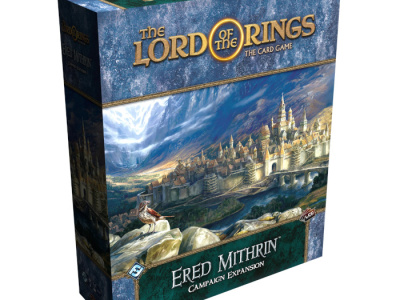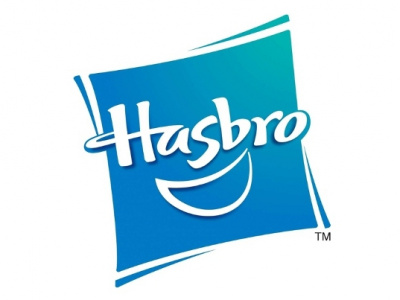In Part 2, we talk about how Games Workshop handles the conflicts between being a chain and e-commerce retailer of its own products and selling them through independent retailers as well. And in Part 3, we discuss the role of distributors, some final thoughts on retailer relations, and a brief discussion of the Games Workshop product line for the next few months. In Part 1, we talked about the company's new direction and how Games Workshop is serving retailers now.
How many stores does Games Workshop have in
56 in the
We've heard retailers express the thought that if they do a lot of business direct with Games Workshop so the nature of the business is very visible to the company, they're concerned that a Games Workshop store might end up opening near them and take that business away. What's your response to that concern from retailers?
I think most of that concern comes from a lack of communication from Games Workshop about what their retail plan was. That lack of communication meant there was an impression these stores were being opened in a very ad hoc way near to them or near to good stores. What is actually the case is we've got a very strong plan for our retail stores and a vision of where we want those retail stores to be. We're concentrating currently in five metro areas -- Baltimore/Washington,
In the past we might have opened stores just because the regional manager okayed it and it went through. Now there's a system in place where it's got to go through some checks and measures. One of the checks we have is 'Is this going to have an impact on any of our independent retailers?' If the answer is yes, that gets thrown into the mix of whether we should open up stores or not. To give you an idea of how that conversation goes, we are now turning away sites based on the fact that we've got good trade accounts in the location. We've turned away three in the last 2-1/2 months -- one in
That doesn't mean we'll stop looking in those top five metros, because we have a fairly aggressive retail opening plan to open our own stores in those five areas. But what we are mindful of is the impact of opening stores too close to an independent. It isn't an exact science though. We did some market research in our stores, and the vast majority -- well over 90 percent -- of people who shop in our own retail stores only travel around five miles to get there. That gives us an area to work with. It means I'm quite comfortable if we went to LA to have a store that would open so long as it was a fair distance away from an independent retailer. Unfortunately, what people consider fair can be subjective.
Games Workshop seems to swing back and forth between wanting to work through independent retailers and focusing more on its own stores. There seems to be a pendulum that swings back and forth. What are your thoughts on that?
I think you're right, there is definitely a pendulum. I think more than Games Workshop, we have some Games Workshop businesses that are very retailer-oriented, and we've got some Games Workshop businesses that are very independent-retailer-oriented. In my experience where it works best is when we've got a good solid retail chain, but we also have a good solid independent retail base, backed up by good solid direct customer service as well. Where one falls over, chances are all three do. And if we have a situation where one business is doing well, invariably it's because all three channels are doing well.
The reason for that is the goal of our own Games Workshop retail stores is recruitment. They are really there to draw people in. The reason 50 percent of the store is gaming space is because they can run introductory games. What we find is these stores generate a lot of interest in an area, they recruit a lot of gamers into the hobby, they sell an awful lot of core games. But then after a while, these people actually want something else, they want something more. The average age in our own retail stores is actually quite low. Once they get to a certain point or a certain ceiling, then the Games Workshop store doesn't offer them all the stuff they want, because they want a club, they want to play bigger games or they want to run campaigns. They also want a wider variety of choice as well, because once you're into playing miniatures games, you want to see a wider choice of miniature games. That's where they feed into the independents around them.
Where we've got this right (and there are certainly more and more instances of us getting this right--the example we have at the moment is Seattle where we're getting it more right than anywhere else), the success of our retail stores is also encouraging the improved success of our independents. We get more independent retailers opening up. We get existing independent retailers selling more. The overall sales of Games Workshop products both in retail and through independents and through direct are all increased. The secret behind that is selling people the appropriate range for their business needs and for their store. The biggest fault in the past, to be honest, has not been that there's been a store that's opened or we've not had the right releases coming out, it's simply that we've asked people to stock a range that was inappropriate for them.
Click here for Part 3.







